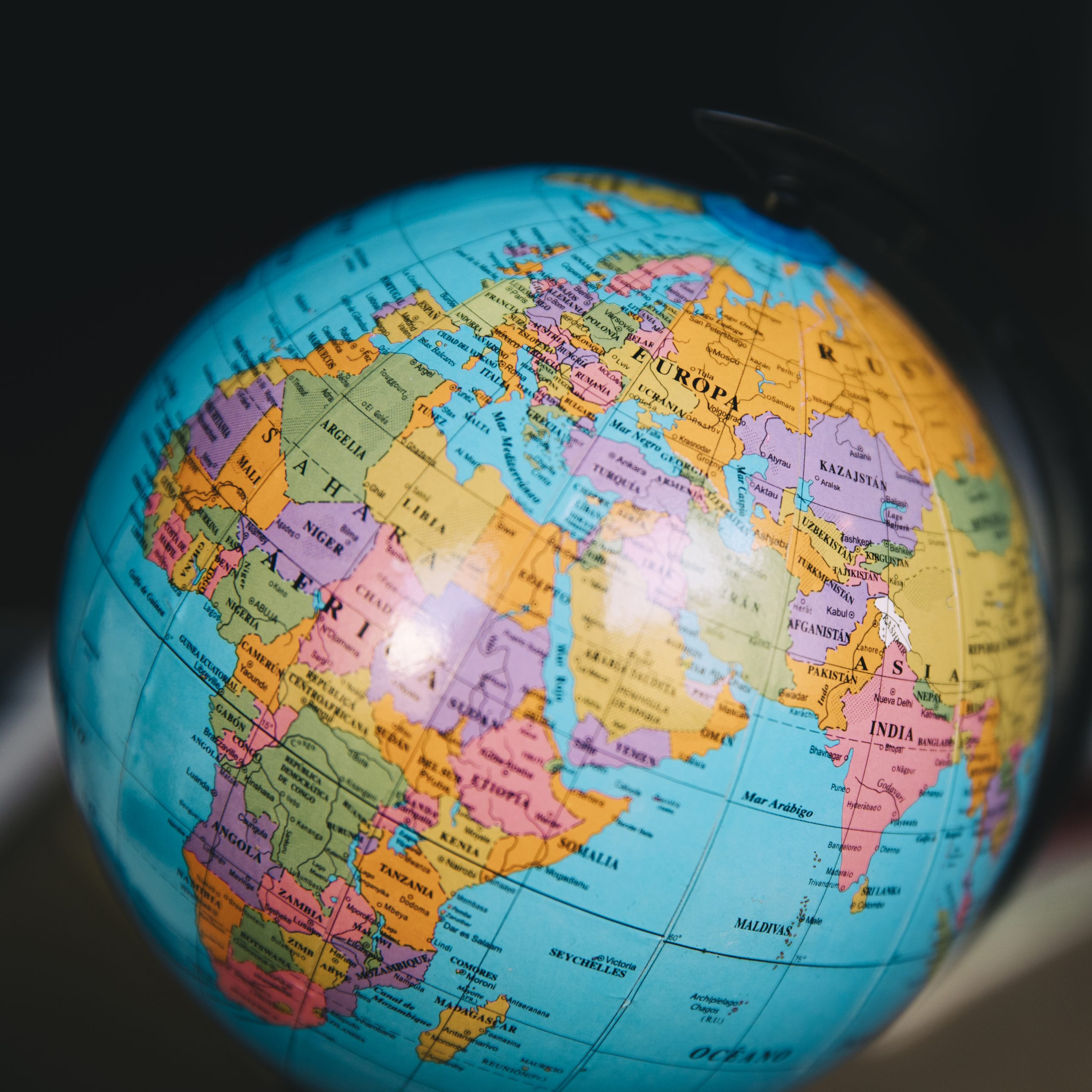While Europe views the world primarily through the lens of geostrategic competition, countries in the Global South are more focused on seizing development opportunities. The incoming EU leadership should focus on strengthening its own offer, rather than competing with China.
The political guidelines of the incoming European Commission led by Ursula von der Leyen – the so-called VdL 2.0 Commission – are shaped by an “age of geostrategic rivalries”. China, in particular, is singled out due to its monopoly on critical raw minerals and its support for Russia’s war against Ukraine. Recent EU tariffs on Chinese electric cars, retaliatory measures from China and wider trade imbalances between Europe and Beijing have brought the relationship to its lowest point in decades.
These bilateral tensions influence the way the EU perceives China’s role in the Global South, particularly in Africa. China’s involvement in Africa is not only seen as diminishing Europe’s – and more generally, the West’s – influence and opportunities, but also as promoting a model of development and governance that is detrimental to Africa.
According to participants at a recent ECDPM roundtable involving African, Chinese and European representatives, this perspective risks overlooking the agency of African governments, businesses and civil society in shaping their own partnerships. It also presents a polarised, if not poorly informed, understanding of China’s role in Africa’s development.
African policymakers, business leaders, analysts and civil society instead have a nuanced view of the contributions that both the EU and China make to their country’s development. This was the conclusion of our recent study of how the EU’s support is perceived by its partner countries, particularly in comparison to China, zooming in on the Democratic Republic of the Congo (DRC), Morocco and South Africa, and their green agendas.
From the perspective of these three countries, every contribution to and investment in their development is welcomed, as long as their own priorities are the starting point. Some countries want to reap the benefits of the global green transition. The DRC, for instance, has promoted itself as a country able to offer solutions to the climate crisis, particularly by supplying critical minerals.
South Africa wants to ensure that any green transition prioritises essential needs like access to energy and decent jobs, while attracting external investments to move towards cleaner energy sources and greener industries. Morocco, on the other hand, is using the geopolitical rivalry between the US, China and the EU to attract more investments in the energy transition industry in a way that serves its ambitious green transition agenda.
“African countries recognise that while players such as the EU and China can help realise their agendas, each presents unique challenges that must be navigated.”
African countries recognise that while players such as the EU and China can help realise their agendas, each presents unique challenges that must be navigated. China has the competitive advantage of cheap green technologies and a model of fast delivery that meets African policymakers’ desire to show quick results. The scale of investments in the green sector under China’s Belt and Road Initiative is remarkable.
China’s ‘no-strings-attached’ approach – in line with the principle of non-interference in national affairs and adherence to national social and environmental regulations – has facilitated Chinese investments. However, this approach now comes at a price. In several countries, from Kenya to the DRC, there have been reports of opaque business deals, labour rights abuses, environmental degradation, accusations of corruption and increased debt, which has resulted in a pushback against and questioning of China’s modes of intervention.
The EU’s Global Gateway strategy attracts interest because it aims to address infrastructure deficits and increase productive investments, rather than being seen as a grand geostrategic initiative. If anything, this characterisation undermines its claim to being a comprehensive strategy for the economic transformation of the Global South. For example, in the DRC – a country at the centre of geoeconomic competition because of its mining production – the perception among policymakers and businesses is that the Global Gateway focuses solely on critical raw materials and the Lobito Corridor, despite its broader scope.
Participants at the roundtable also raised questions on Europe’s autonomy vis-à-vis the US, highlighting that both African and Chinese observers often perceive the EU as aligned with US policies contrasting China’s technological dominance and, more broadly, its rise in global politics.
“There is a lesson to learn for Europe here: making assumptions about the agendas, needs and ways of working of its partners will neither lead to development progress nor serve Europe’s interests.”
The main takeaway for Europe is that any offer to partner countries should stand on its own feet, rather than compete with China. Instead, Europe should do its homework and better brand and implement the Global Gateway strategy. This is particularly important as the incoming European Commission is tasked with scaling up the strategy and making it “the most attractive integrated offer to our partners”, to support global connectivity. Additionally, there is a pressing need to speed up disbursements.
In fact, the EU’s slow delivery weakens its offer, jointly with its piecemeal approach to demands on local value addition and its perceived rigidity and patronising attitude on green transition pathways and priorities. In South Africa, for instance, restrictions on financing for green energy under the Just Energy Transition Partnership (JETP) and the EU’s Carbon Border Adjustment Mechanism (CBAM) provisions are perceived as limiting national development ambitions – especially when measured against South Africa’s minimal historical contribution to global warming.
At the same time, our study showed that the EU and its member states are appreciated because they bring expertise, including contextual knowledge acquired in colonial times – for instance, on the DRC’s mineral geology – as well as wider expertise on business development and on environmental, social and governance (ESG) standards.
One participant at our roundtable underlined that a key reason for the Belt and Road Initiative’s appeal in partner countries is its nature as an umbrella project, which, at the same time, has proven flexible enough to connect Chinese capacities and needs with the developmental needs of other countries, particularly in productive sectors and infrastructure.
There is a lesson to learn for Europe here: making assumptions about the agendas, needs and ways of working of its partners will neither lead to development progress nor serve Europe’s interests. It would be much better to take a humbler approach, look at success stories – regardless of their origin – and adapt the European offer to what partners actually want and need.
About the Author
Mariella Di Ciommo is the associate director of ECDPM’s Europe and Africa in the world cluster. She is also a member of the management team. Mariella’s work focuses on EU foreign and development policy, Africa-Europe relations, finance and gender.


